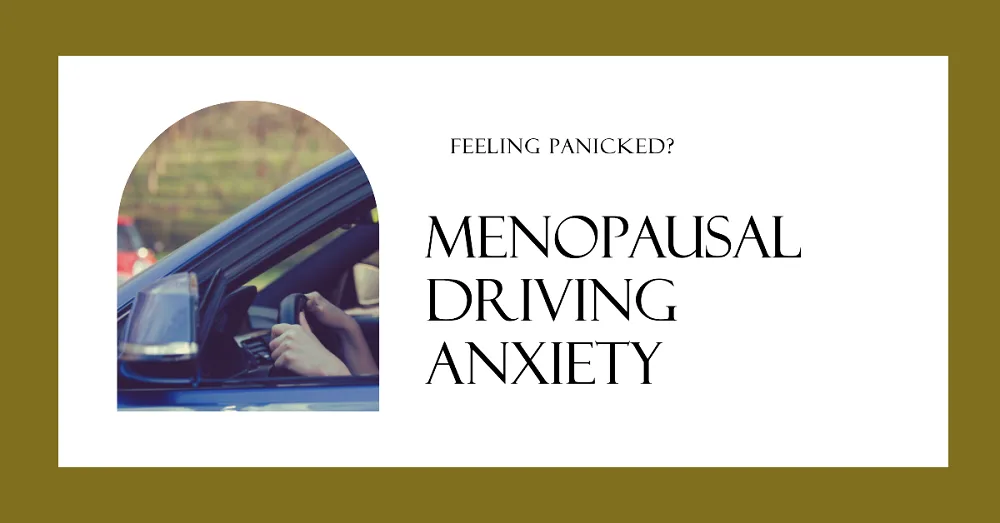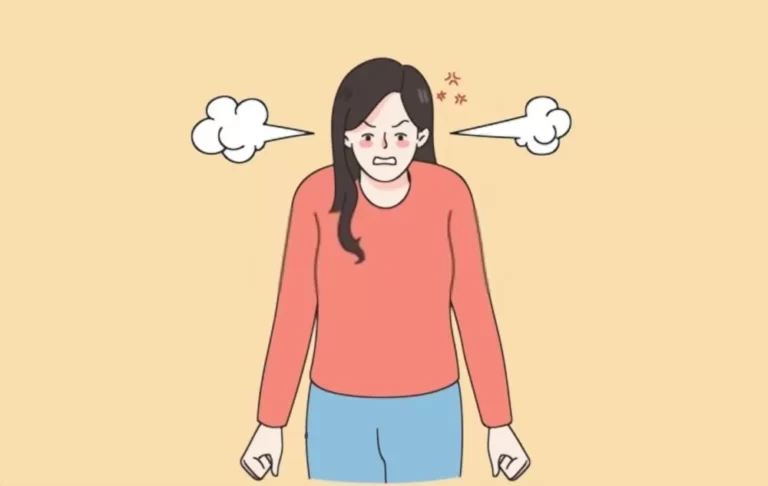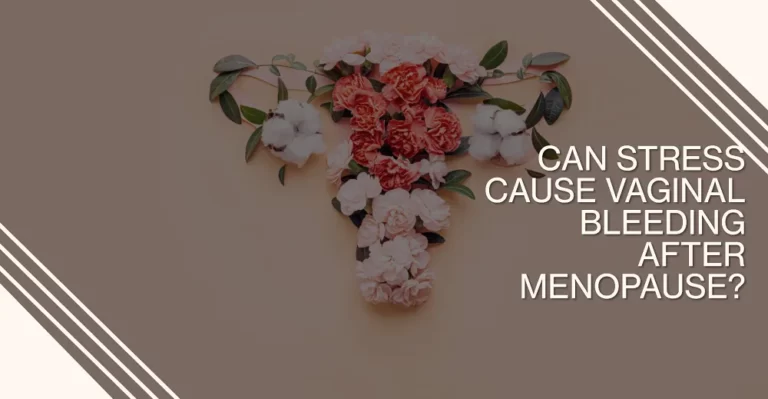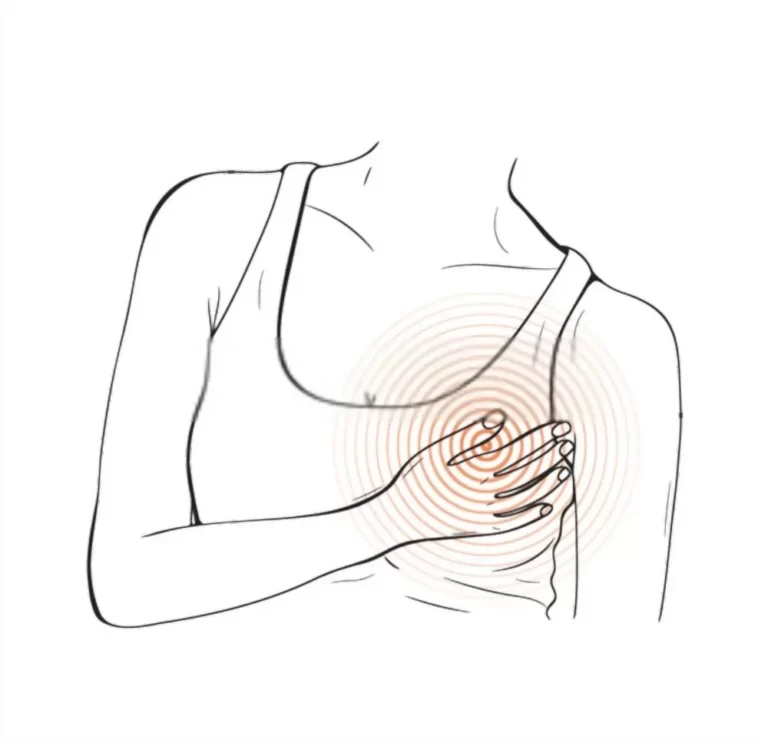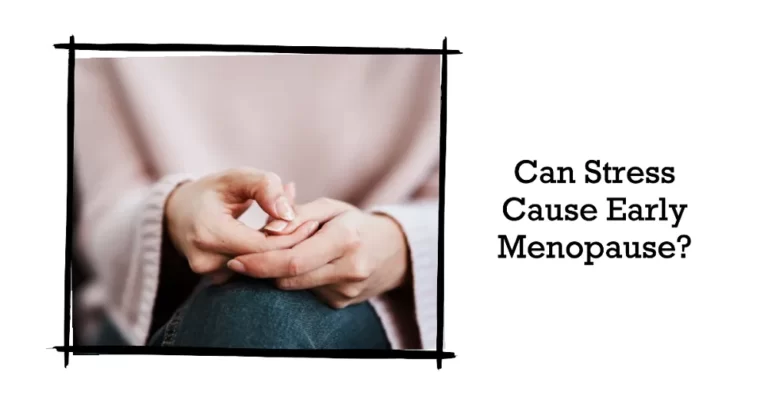Can Menopause Cause Anxiety When Driving a Car: Understanding Menopausal Driving Anxiety and How to Overcome the Fear
Let’s say you’re driving down the highway, enjoying the wind in your hair and the open road ahead. Suddenly, your heart starts pounding, your palms sweat, and you feel you’ll lose control.
Feeling anxious, overwhelmed, and scared.
You’re panicking, and your chest tightens. You feel like you cannot breathe, and all you want to do is get out of the car and find a safe place.
If this sounds familiar, you may be experiencing driving anxiety.
It’s okay; you’re not alone. It’s a scenario many women go through, especially during menopause.
Menopause occurs when a woman’s body stops producing the hormones estrogen and progesterone. As a result, her body may experience changes like hot flashes, mood swings, vaginal dryness, and weight gain.
The resulting hormonal imbalance can profoundly affect mental health, leading to depression, anxiety, and fear of losing control. These feelings can manifest themselves while driving, resulting in a feeling of panic and helplessness.
It’s just your body reacting to hormone changes; it doesn’t mean you’re losing control.
Take steps to manage your anxiety if you’re worried about driving. Talk to your family and friends about your feelings, and see a doctor about possible treatments.
It’s also important to practice safe driving habits, such as staying extra alert and always paying attention to the road. Taking breaks when needed, avoiding distractions, and setting realistic expectations can all help to reduce the fear and anxiety associated with driving.
Driving is an essential part of our daily routine, and losing the ability to drive can be a huge blow to our independence and self-esteem. But don’t worry; we are here to help you cope with your anxiety while driving. We’ll explore why this happens and what you can do to regain your confidence behind the wheel.
Driving Anxiety During Menopause: A Rollercoaster Ride of Hormones and Emotions
What exactly is driving anxiety? Driving anxiety is a fear that arises when you’re behind the wheel. It can happen due to different reasons.
Some people may feel uncomfortable driving on highways or crossing bridges, while others may experience fear in dense traffic or driving during a storm. Menopausal driving anxiety is slightly different and usually leads to more general anxiety related to being behind the wheel.
The exact cause of menopause-induced anxiety is still unknown, but it’s likely tied to the hormonal changes that occur during this time. This can lead to heightened fear and panic when faced with certain situations, such as driving in traffic or on highways.
During menopause, our bodies go through a hormonal rollercoaster ride. The estrogen and progesterone levels decrease, affecting the production of neurotransmitters in our brains.
Neurotransmitters are chemicals that help our brain cells communicate with each other.
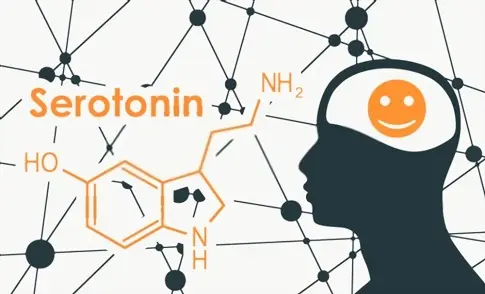
One of the neurotransmitters that is affected is serotonin, which is responsible for regulating our mood and emotions. When serotonin levels are low, we are more likely to experience anxiety and depression.
Now, let’s talk about how this relates to driving. Driving can be stressful, especially on a dual carriageway or a motorway with a lot of traffic and an increased sense of danger.
The fear of being in a dangerous situation and the decrease in serotonin can lead to increased anxiety levels. In an anxious state, our body enters a form of “fight or flight.”
This means our heart rate increases, our breathing becomes shallow, and our muscles tense up. An increase in hormones like adrenaline and cortisol can impair our ability to concentrate, making driving difficult.
So, when a woman is going through menopause, and her hormone levels are already low, it’s easy for the slightest trigger, such as driving in traffic, to cause anxiety. And make it harder to focus on the road, react quickly to unexpected situations, and make good driving decisions.
How Menopausal Symptoms Can Trigger Anxiety While Driving?
Let alone the brain chemicals that can make driving more difficult, as women go through menopause, their hormone levels shift, leading to physical changes in their bodies. These changes can cause hot flashes, night sweats, dry skin, and other uncomfortable symptoms resulting in fear of losing control while behind the wheel.
For example, sudden hot flashes can trigger a panic attack while driving, leading to anxiety and fear of losing control. The sudden surge of heat and sweat can affect our concentration, making it difficult to focus on the road.
Along with physical symptoms, menopausal women may also experience mental health issues, such as anxiety, depression, and cognitive changes, such as forgetfulness and difficulty concentrating. These can affect their mental state while driving, making them feel apprehensive and less confident.
Insomnia, which is common during menopause, can also affect driving. Fatigue and sleep deprivation can significantly reduce our ability to focus and react quickly, increasing the risk of accidents.
These physical symptoms and mental health issues can cause extreme anxiety, which causes hypervigilance and overthinking, making it harder to make quick decisions. As a result, the fear of being in an accident can be overwhelming.
Symptoms of Menopausal Driving Anxiety
Several signs and symptoms may indicate a woman is experiencing driving anxiety due to menopause. Let’s take a look at some of the most common signs:
Rapid Heartbeat
When you’re anxious, your heart beats faster, and your breathing becomes shallow and rapid. These symptoms are the body’s way of preparing for a fight or flight response.
The hormonal fluctuations during menopause can cause the heart to beat faster, making it harder to concentrate while driving. These strong, fast heartbeats can cause lightheadedness, shortness of breath, and chest pain.
All of which can make them feel like they’re having a heart attack. This can lead to a vicious cycle of anxiety and avoidance, limiting their access to necessary places for daily life.
Confusion and Panic Attack
Memory problems, poor concentration, and difficulty multitasking are common symptoms of menopausal driving anxiety. The hormonal shifts that occur during menopause can cause changes in the brain that affect cognitive function.
The brain becomes overstimulated and confused as the cortisol and adrenaline levels rise. This can cause disorientation while driving, making it difficult to remember directions or stay on track with your route and triggering panic attacks.
The sudden surge of adrenaline and cortisol can increase your heart rate, making it harder to concentrate on driving safely. This can cause feelings of dread or terror and the fear of losing control behind the wheel.
Increased Sensitivity to Stimuli
Anxiety can cause heightened sensitivity to external stimuli, making it harder to concentrate on driving. Loud noises, bright lights, and even traffic sounds can be distracting and overwhelming for someone with menopausal driving anxiety.
These stimuli can trigger the release of hormones, making it harder to stay focused on the task at hand. The increased sensitivity may also make the person more likely to experience a panic attack or feelings of distress while driving.
It’s important to be aware of these triggers and take steps to reduce their impact, such as wearing noise-canceling headphones or avoiding busy roads during peak traffic times.
Cognitive Impairments
The hormonal changes in your body can also affect your cognitive function, leading to memory problems, difficulty concentrating, and multitasking. These cognitive impairments can make it tough to focus on the road and remember the directions.
Just imagine forgetting where you’re going while driving. It’s not the best scenario, right? Moreover, these cognitive changes increase the risk of accidents, putting both yourself and others around you in danger.
So what’s happening in your brain during menopause? The levels of estrogen and progesterone, two essential hormones for cognitive function, drop during this time.
These hormones are crucial in memory, attention, and concentration neurotransmitters. Therefore, the changes in hormone levels directly affect cognitive functioning.
Dizziness
When you’re anxious, you can feel lightheaded or dizzy. Hyperventilation or changes in blood flow usually cause this symptom.
Dizziness and vertigo can also occur as a symptom of menopausal driving anxiety. The changes in hormone levels affect the vestibular system, the balance control center in the inner ear.
This can lead to a feeling of disorientation or dizziness. People experiencing these symptoms can have difficulty focusing on the road or judging speed and distance.
Dry Mouth
Menopause can cause dry mouth, leading to difficulty swallowing and speaking. This symptom can increase the severity of driving anxiety.
A dry mouth can also cause dehydration and fatigue, affecting a person’s concentration while driving.
Shortness of Breath
The feeling of not being able to take a deep breath. It is mainly caused by the body’s reaction to stress and anxiety, which can cause muscles in the chest and neck to tighten.
Shortness of breath is a common symptom of menopausal driving anxiety. Changes in hormone levels can cause the airways to narrow, and the body’s reaction to stress can make it harder to take a deep breath. And, of course, this can make the situation even worse.
Sweating
Many women experience hot flashes and night sweats during menopause, which can increase sweating and exacerbate driving anxiety.
Why sweat, you ask? Sweating is the body’s way of releasing heat and regulating body temperature.
When we get anxious or scared, as the fight to fright response kicks in, our body releases an adrenaline hormone that causes us to sweat more. This can make the experience of driving even more stressful and overwhelming.
Sweaty palms
Sweaty palms are a common symptom of driving anxiety. They are caused by the activation of the sympathetic nervous system and the release of adrenaline in response to stress.
Sweaty palms can make it difficult to grip the steering wheel firmly, increasing the risk of an accident.
The Devastating Effects on Women’s Daily Lives
Menopausal driving anxiety is a debilitating condition affecting thousands of women daily, leaving them feeling helpless, trapped, and scared. The emotional intensity of this anxiety can be so extreme that it often leads to panic attacks characterized by feelings of impending doom and loss of control.
But why do women experience such intense feelings behind the wheel? Simply put, menopausal anxiety can create a state of heightened sensitivity to the road, other drivers, and environmental factors, making the experience of driving overwhelming and downright terrifying.
Here are some of the most common symptoms of menopausal driving anxiety that illustrate the negative impacts on daily life:
Fear of Losing Control
One of the most common fears experienced by women with menopausal anxiety is losing control. They fear losing control of the car, hitting other drivers, or becoming the victim of a road rage incident.
She might feel like her mind is racing with negative thoughts, like “What if I crash the car?” or “What if I get lost?” Feel panicky and overwhelmed with the thought of having to drive.
This fear can lead to avoiding driving entirely or only driving under certain conditions they deem safe.
Extreme Concentration
Another symptom of menopausal driving anxiety is the need for extreme concentration on the road. Women may find themselves obsessing over every detail of their drive, from the speed they’re traveling to the distance between them and other drivers on the road.
This can cause extreme fatigue and mental exhaustion, making daily grocery shopping, doctor’s appointments, and work almost impossible.
Avoidance Behavior
Finally, women with menopausal driving anxiety may start to engage in avoidance behavior to reduce their anxiety levels. They may avoid driving altogether or only in familiar situations and conditions they perceive as safe.
Avoidance behavior can significantly negatively impact daily life, limiting access to activities, jobs, and even socialization. One of the most common effects of this behavior is social isolation, which can be devastating for individuals experiencing menopausal driving anxiety.
Coping Strategies for Driving Anxiety During Menopause: Tips for Regaining Confidence
Menopausal driving anxiety can be challenging to manage, but with the right coping strategies, it doesn’t have to stand in the way of your daily life.
Take a Break
If you feel overwhelmed by anxiety while driving, stopping and taking a break is important. Pull over to a safe location, take a few deep breaths, and visualize a calm, relaxing scene to help you feel more centered.
Calming activities such as listening to music or calling a friend for moral support may also be helpful.
Take It Slow
Driving with menopausal anxiety can be incredibly intimidating, and it’s important not to rush yourself. Start slow and gradually increase your speed as you become more comfortable behind the wheel.
Sometimes the best way to overcome anxiety is to face it head-on. This can be scary, but it can also be empowering.
Start small. Maybe drive to a nearby store instead of avoiding the trip altogether. The more you practice driving in different situations, the more comfortable you will become.
Identifying Triggers and Prepare Ahead of Time
When managing menopausal driving anxiety, it is important to identify the triggers that cause your anxiety and develop coping mechanisms to address them. For example, if busy roads are a particular trigger for you, plan ahead and take alternative routes that are not as busy.
Before getting behind the wheel, it can be beneficial to prepare for a drive. This includes familiarizing yourself with your route and planning for as many variables as possible.
If driving in unfamiliar or busy areas is particularly anxiety-inducing, try finding alternative routes to make you feel more comfortable. Similarly, if music is particularly calming for you, consider bringing along some of your favorite tunes to help you relax while driving.
Addressing Negative Thoughts and Beliefs
It is also important to pay attention to the thoughts and beliefs causing your anxiety and work on reframing them positively. For example, instead of worrying that you will make a mistake while driving, focus on your capability and trust in your ability to stay safe.
Negative thoughts can often lead to increased anxiety, so it’s important to recognize these and replace them with more positive affirmations. Speak kindly and compassionately to yourself, encouraging and reminding yourself that you can drive safely.
Relaxation Techniques
- Deep Breathing: Deep breathing exercises can help to reduce the physical symptoms of anxiety and provide a sense of calm.
To use deep breathing as a coping strategy for driving anxiety, start by finding a calm and quiet place to sit down and focus on your breath. Close your eyes and breathe deeply through your nose, filling your lungs fully.
Hold your breath briefly, slowly releasing it through your mouth. Repeat this process for several minutes, focusing solely on your breath and clearing your mind of racing thoughts.
- Mindfulness Meditation: Mindfulness meditation is another great technique for reducing anxiety while driving. This type of meditation involves focusing on the present moment without judgment or worrying about the future.
Focus on the road and your surroundings rather than your anxious thoughts while driving. Notice the sensation of the steering wheel in your hands, the sound of cars passing by, and other sensory details around you.
You can also use mindfulness apps like Headspace or Calm to help guide you through short meditation sessions.
- Progressive Muscle Relaxation: Progressive muscle relaxation helps to reduce anxiety by systematically tensing and relaxing different muscle groups in the body.
To practice this technique while driving, focus on one part of your body at a time and consciously tense the muscles for 5-10 seconds before releasing them. Repeat this process for each area of your body until you feel relaxed and centered.
Cognitive Behavioral Therapy
If menopausal driving anxiety is severely impacting your daily life, it may be beneficial to seek professional help. Cognitive behavioral therapy (CBT) is a type of psychotherapy that focuses on identifying and changing negative thought patterns to reduce anxiety.
It is a time-limited, goal-oriented approach that is backed by extensive research. CBT can be helpful for people dealing with all types of anxiety, including driving anxiety during menopause.
The therapist works with the client to identify the specific negative thoughts and beliefs contributing to their anxiety while driving. These thoughts often take the form of “what if” scenarios, such as “What if I have a panic attack while driving?”, “what if I get lost?” or “What if I cause an accident?”.
The therapist helps the client challenge these thoughts by examining the evidence for and against them and creating more balanced and realistic interpretations. For example, if a woman fears getting lost while driving, her therapist may help her make a navigation plan, such as using a GPS or printing out directions ahead of time. If a woman is afraid of having a panic attack while driving, her therapist may teach her relaxation techniques or coping strategies to use in those situations.
Over time, these new ways of thinking and behaving can reduce anxiety and make driving during menopause more manageable.
Hormone Replacement Therapy
HRT is a treatment that involves replacing hormones that the body no longer produces at the same levels as before menopause. One of the most significant benefits of HRT is that it can reduce hot flashes and night sweats, which can negatively impact overall well-being and exacerbate anxiety symptoms.
Also, HRT can help alleviate depression, mood swings, and other emotional side effects of menopause, further reducing anxiety levels. However, it’s essential to speak with your healthcare provider to determine whether HRT is the right option for you.
HRT can come with potential risks, such as an increased risk of blood clots, breast cancer, and stroke. Your doctor can help you weigh the risks and benefits of HRT and decide whether it’s the right choice for you.
Lifestyle Changes

- Regular Exercise: Exercise is a great way to reduce stress and improve your mood. Physical activity helps to release endorphins, which are natural mood boosters.
It also helps improve your overall health, including cardiovascular health, which can help you feel more confident and in control while driving. Exercise releases endorphins which help to reduce stress and improve mood.
- Healthy Eating: Eating a healthy diet can help reduce anxiety, improve mood and energy levels, and support overall health. Aim for a diet rich in fruits, vegetables, whole grains, and lean proteins.
Limit your intake of processed and sugary foods. Avoiding caffeine, alcohol, and nicotine as these substances can worsen anxiety symptoms. Opt for herbal teas or decaffeinated drinks.
- Good Night’s Sleep: Sleep is crucial for coping with menopausal anxiety. When well-rested, you can better manage stress and control your emotions.
Establish a consistent bedtime routine, including winding down before bed. Avoid electronics for at least an hour before bed, and limit caffeine and alcohol consumption.
If you have difficulty falling or staying asleep, speak with your healthcare provider about possible solutions. They may suggest natural remedies such as using essential oils or taking herbal supplements or recommend a sleep medication.
Seek Help

- Family and Friends: Talking to your family and friends about your feelings can be incredibly helpful. They may offer invaluable support, perspective, and advice.
Avoid bottling up your emotions, and don’t be afraid to seek help when needed. Reaching out to a trusted friend or family member when feeling overwhelmed can help relieve some of the burdens you may be feeling.
- Professional Counseling: Sometimes, it can be beneficial to seek professional help. A therapist or counselor can offer valuable guidance and support if your severe anxiety interferes with day-to-day activities.
Therapy can provide you with skills to manage short-term and long-term strategies for managing stress and reducing overall anxiety levels. Talk to a doctor or mental health professional for the right treatment plan.
- Medication and Supplements: Sometimes, antidepressants or benzodiazepines may be recommended to help reduce anxiety symptoms. It’s important to speak with your healthcare provider and follow their instructions carefully before taking any medication.
Anti-anxiety medications can help reduce your symptoms in the short term but should not be used as a long-term solution. You can opt for supplements and other natural solutions for menopause anxiety.
There are a number of supplements available to help reduce menopause anxiety. Some popular options include NuviaLab Meno, NuviaLab Relax, and magnesium supplements. Sometimes, they are very much natural and safer than traditional medication.
Herbal remedies such as passionflower and valerian root may also help manage stress. Before taking any supplement or herbal remedy, please speak with your healthcare provider to ensure they are safe.
- Support Groups: Joining an online or in-person support group for women going through menopause can help you feel less alone and provide reassurance that others are experiencing similar symptoms. Support groups allow you to connect with other women, share stories and advice, and get the emotional support you need.
This can increase coping skills and provide an outlet to discuss your feelings without judgment.
Take on Your Nemesis, Menopausal Driving Anxiety
We understand menopausal driving anxiety can make you feel like the world is against you. But we want you to know you’re not alone in this struggle.
Many women face this issue, and there’s no shame in seeking help. Whether you prefer natural remedies, medication, or therapies, plenty of options help you cope with menopausal anxiety.
You can return to happy and relaxed life with the right treatment plan. You don’t have to suffer in silence. Reach out for help today, and take the first step towards a calmer tomorrow.
Thank you for reading. We hope this information was helpful and will give you the courage to seek assistance if needed.
Good luck on your journey towards better mental health.

